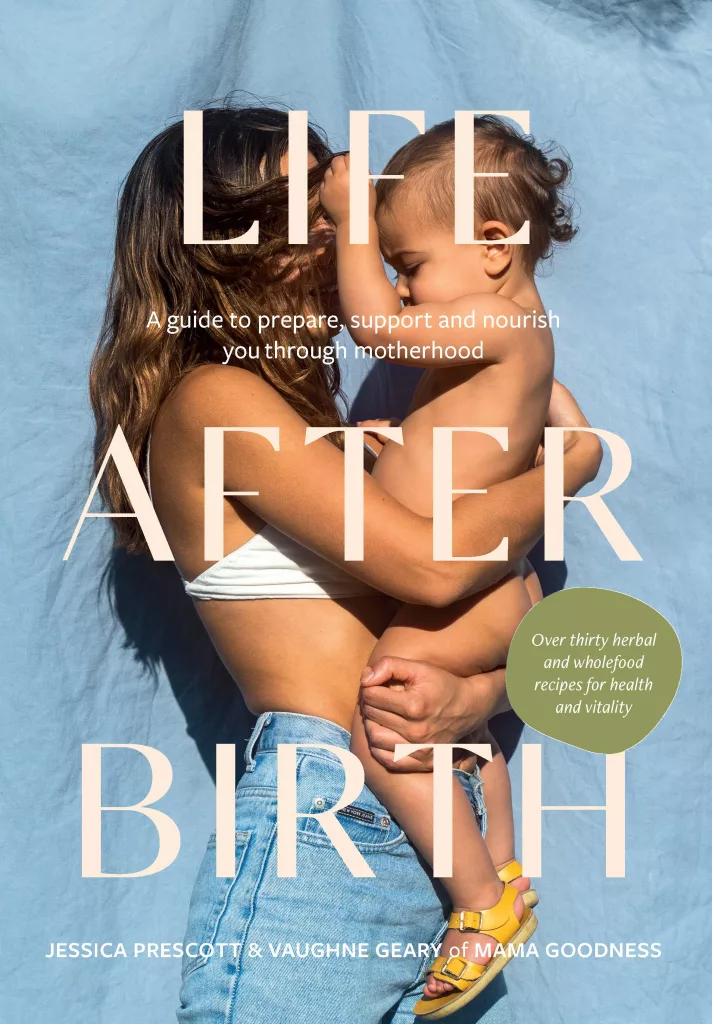Let’s talk about sex after baby. Yep, this one is a biggie. Life After Birth authors Jessica Prescott and Vaughne Gear spill the tea.
By Jessica Prescott and Vaughne Geary
The recommended wait time from health professionals between giving birth and intercourse is four to six weeks to allow vaginal or vulvar injuries to heal, lochia discharge to ease and to minimise risk of infection.
But when we asked the mothers in our community about their sex life after birth, the results were incredibly varied.
While there was a large cluster who waited between four to six months before having sex for the first time. There were others who waited much longer than this (and some who could barely wait at all).
Many admitted to feelings of shame about how long it took them to have sex and about how much their sex life had changed now they are parents.
Dr Martien Snellen says in his book Rekindling:
“The postpartum period is generally a time of transition. And it isn’t unusual for this to affect the nature and frequency of a couple’s sex life, if pregnancy hasn’t already altered it irrevocably. It’s a complicated business involving social and cultural influences. Physical changes. An altered emotional state. Contextual factors. Breastfeeding. Relational changes. Loss of autonomy. Changes in body- and self-image. And the process of psychologically adjusting to parenthood. Not to mention good old-fashioned exhaustion.’
“IF YOU ARE TOO EXHAUSTED FOR SEX BY THE TIME YOUR CHILDREN ARE FINALLY ASLEEP AT NIGHT, TRY GETTING JIGGY WITH IT DURING NAP TIME INSTEAD.”

Life, as we know it, has changed
Regardless of how long we wait before resuming intercourse, our sex life changes drastically for most of us after we have kids. And it can take months (and even years) for your sex drive and emotional state to feel truly ready.
Following birth, your hormones are focused on breastfeeding and recovery, rather than libido. With the lactation hormone prolactin counteracting arousal and low levels of oestrogen often causing vaginal dryness. The style of sex you enjoyed before giving birth might not feel good anymore or may even feel painful.
For many who have been conditioned to believe sex is an act of giving and partner pleasing, the thought of offering your body and energy on top of all you give as a new mother can feel suffocating.
Hormones. Physical trauma or injury from birth. Exhaustion. Being touched out. Feeling like our body now belongs to our baby. Resentment (whether conscious or subconscious) towards our partner for seemingly how little their life has changed. They all come into play here.
In addition, many of us don’t realise until we fall pregnant that sex often took place after a wine or three.
And we feel embarrassed talking about our needs without the disinhibition of alcohol and other substances. Many close confidantes have said they feel more comfortable telling a one-night stand what they want in bed than their partner of 10 years.
Sex isn’t everything
We live in a world where a healthy sex life is seen as the holy grail in a relationship. But what about security, contentment, shared goals and making each other laugh until you cry?
Does physical repulsion at the thought of having sex matter if your relationship is perfect in every other way?
Ultimately, that depends on you and your partner. When there is a disparity in the sexual needs of each person in a relationship, it’s important to work on staying connected so you can ensure both of your needs are being met.
“Today we turn to one person to provide what an entire village once did: a sense of grounding, meaning and continuity. At the same time, we expect our committed relationships to be romantic as well as emotionally and sexually fulfilling. Is it any wonder that so many relationships crumble under the weight of it all? It’s hard to generate excitement, anticipation and lust with the same person you look to for comfort and stability, but it’s not impossible. For some of us, love and desire are inseparable. But for many others, emotional intimacy inhibits erotic expression.” – Esther Perel, Mating in Captivity

Staying Connected
Every interaction with your partner is an opportunity for connection. How do you react when they speak to or share something with you? Do you put your phone down? Look up from your baby? Pay attention to what they are saying and respond? Or do you continue what you are doing and dismiss them?
Dr John Gottman refers to these moments as ‘bids’ and our reactions to them as either ‘turning towards’ or ‘turning away’. In his research he found that couples whose marriages lasted turned towards each other 86 per cent of the time. And couples who ended up divorced or separated turned towards each other only 33 per cent of the time.
It is important to carve out uninterrupted connection time with your partner. We know, we know, you hear this everywhere. But date nights are a great place to begin, even if they happen in the comfort of your own home.
It is more than understandable that the idea of leaving your child/ren with someone else may induce anxiety or be logistically difficult. But if and when possible, it can be beneficial for you as a couple to get out of the house together and shift away from the monotony of parenthood.
If a date night is out of the question, try having lunch in the park or even a takeaway coffee and a walk around the block.

Planned Intimacy
Euphemia Russell, full spectrum pleasure coach and bestselling author of Slow Pleasure says, ‘As a culture, we’re obsessed with thinking that authentic intimacy needs to be spontaneous.
Yet, with anything that is important to you in your life you plan it so you can prioritise it. And carve out space for deep attention and presence.
I suggest to literally everyone in relationships that you plan pleasure time. That doesn’t mean sexual pleasure and scheduling sex. But rather body-focused pleasure together like massages, baths, holding hands and going for a walk to look at details, making out, taking sexy photos of each other. Whatever feels enlivening for both/all of you.
See it as an opportunity to mutually soften, open, and deepen with each other amongst the chaos of life with children.
It’s also important that if you’re sexually intimate that there isn’t pressure to always escalate the intensity of that dynamic. So if you are making out, release expectation that it will escalate to a particular type of sexual pleasure. Practise seeing pleasure as meandering, non–goal oriented, and non-hierarchical.’

Tips for Partners:
It may take a long time before your partner has any semblance of a libido after giving birth. Be patient, and when they are ready take it slow and gentle. Even if your partner has been given the thumbs up by their GP, they may not feel physically or emotionally ready.
Let them take the lead and read their facial cues to see if they are enjoying it or not. Use lots of lube, take lots of breaks, and don’t be alarmed if they spray breastmilk on you. This can happen during an orgasm.

Lube It Up!
When you are ready for your sex life to resume, start slow and remember, lube is your friend. Not all lubricants are created equal and many over the counter or supermarket brands can contain parabens and other nasty ingredients that may disrupt your vaginal microbiome and increase risk of infections.
It’s smart to stay away from flavoured lubes as these contain sugars which may throw your vaginal pH out of balance. And avoid any containing glycerin. Which despite its short term benefits, can actually pull moisture out of your vaginal tissue.
A good rule of thumb is to choose a natural, water-based lubricant or play around with organic, unrefined plant oils such as coconut or jojoba oil. If using a condom it’s important to note that oils can break down natural latex, causing condoms to tear. If you do experience any discomfort while using these, keep playing around until you find something that works.

Make the Most of Daytime Sex
If you are too exhausted for sex by the time your children are finally asleep at night, try getting jiggy with it during nap time instead.
Many of the mothers in our community swear by this for keeping their connection alive.
This is an edited extract from Life After Birth by Jessica Prescott and Vaughne Gear
Sign up to our newsletter for weekly mama goodness delivered straight to your inbox, like the VIP that you are.






